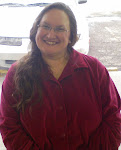Despite my plans, I did not, in fact, get to any shows this weekend. However, with my son still out of town, I did get some very high quality time in with Richard—the kind of time that every marriage should make room for once in a while.
On Sunday, I took a long walk, enjoying the beautiful day and found myself thinking back to Riverwalk’s production of James Joyce's The Dead. One of the beautiful things about great shows is how they stick with you and continue to give you things to think about long after they are done. The Dead had such beautiful imagery, language, music, and themes, that they’ve continued to resonate with me and to occasionally stroke my thoughts with new ways of looking at them.
The Dead is a memory play, but the memories central to the play are less those of the narrator and more those of the narrator’s wife. So why not have the wife be the narrator? That was the fascinating layer that my mind played with on Sunday. Joyce invites us to ask what we would do if faced with the narrator’s circumstances—what do you do when your love of a lifetime is flush with remembered love and filled with tears over the loss of a past lover, one who disappeared decades before?
This is where Doak Bloss’ choices and Mary Job’s direction was truly brilliant. For it was as much the facial expressions, the movements on stage, and the lighting as it was the words of the script that showed the husband’s choices. He was pained that the love he thought was exclusively his belonged in part to a memory. Yet, the love for his wife was so great that he did not berate her. He did not turn her pain into a betrayal of him or of their marriage. He didn’t try to exorcise the ghosts of the past, but rather, went and held his spouse so that they would not be alone during the haunting.
Would their marriage be the same afterward? Joyce doesn’t tell us, but if I were to believe the interpretation presented, I would say no. Neither person nor marriage would ever be the same afterward, but they would likely be better.
Monday, June 29, 2009
Subscribe to:
Post Comments (Atom)




No comments:
Post a Comment